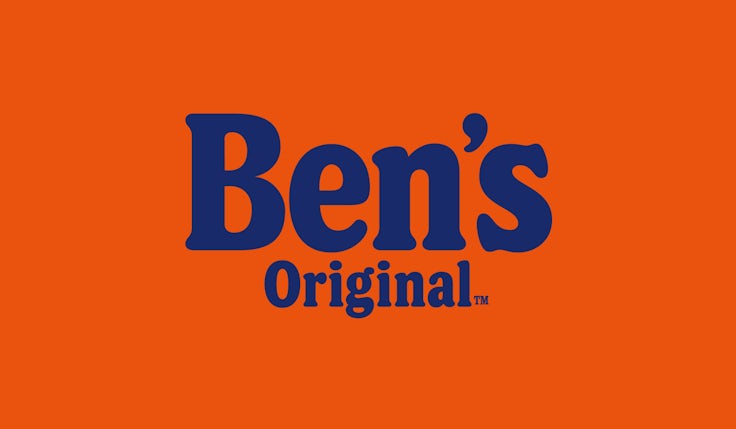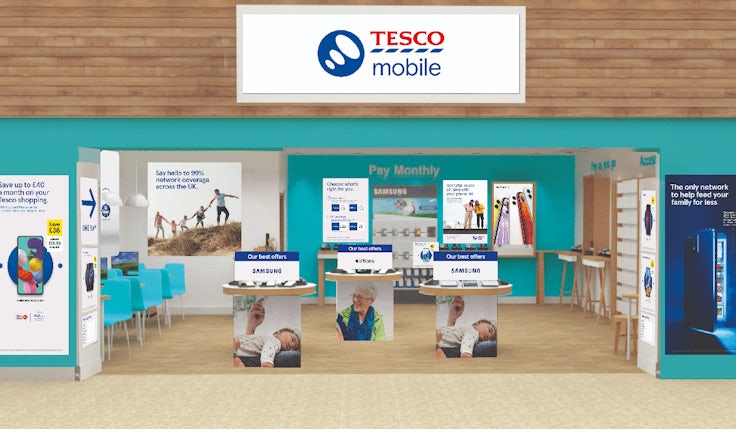Uncle Ben’s, Tesco Mobile, Confused.com: 5 things that mattered this week and why
From Mars’s rebranding of Uncle Ben’s to a shift in marketing for Confused.com and the rise of DTC brands, catch up on the most important marketing news from the week.
 Mars put purpose into Uncle Ben’s rebrand
Mars put purpose into Uncle Ben’s rebrand
Mars promised to rebrand Uncle Ben’s back in June in the midst of the Black Lives Matter protests and after ongoing criticism that its name and imagery perpetuate racial stereotypes.
This week, it carried through on that promise, changing the name to Ben’s Original and getting rid of the image of a black man in a bow tie that appeared on its packaging and in its marketing. It is one of a number of companies reconsidering some of its brands in light of heightened awareness of racial inequality in the US and globally.
Mars on the power of purpose in a polarised world
The move could have been dismissed as an opportunity for some good PR for Mars, but the company is doing more than just sticking a new name on the brand. Ben’s Original is launching a $2m scholarship fund to support aspiring black chefs in the US, while in its home town of Greenville, Mississippi it is investing to help more than 7,500 students gain access to better education and fresh food.
This is to be commended. Mars is moving beyond a simple badging exercise to try to really make a difference to communities that have suffered due to racial inequality. This is what being anti-racist looks like.
READ MORE: Mars rebrands Uncle Ben’s after criticisms over racial stereotyping
DTC brands benefit as Covid impacts buying behaviour
A crisis always has winners and losers and the Covid-19 pandemic is no different. For certain brands, the consumer shift towards online sales and a willingness to try direct-to-consumer models has benefitted them.
New research from BBH London, shared exclusively with Marketing Week, reinforces that for many categories buying online is now mainstream behaviour. In a survey of 1,000 consumers, two-thirds (65.6%) say they are either ‘a lot’ or ‘a little’ more likely to buy online, with convenience rather than price the key factor.
More than half of consumers (58.4%) claim that buying direct from brands is faster, while others cite the ease of search (57.4%) and the fact products are cheaper (32%). Many of those consumers are already buying directly from brands, circumventing traditional retailers to get their products, although uptake varies widely by category.
The shift in behaviour, while no surprise, is one that all brands need to pay attention to. Of course the pandemic has accelerated some trends, while others might resort to more normal patterns when things eventually return to normal.
The brands that win out are those that can set the same standards across product, brand and experience – whether buying in-store, online or direct.
READ MORE: Consumers open the door to DTC success in a post-pandemic world
Ordnance Survey looks to position beyond maps
 OS (or Ordnance Survey as it was known before a rebrand in 2015) is synonymous with maps. However this makes up just 5% of the company’s revenues.
OS (or Ordnance Survey as it was known before a rebrand in 2015) is synonymous with maps. However this makes up just 5% of the company’s revenues.
It now wants to better explain the full range of location services it offers, from the ability to help supermarkets better plan deliveries to helping engineers avoid hitting an electricity cable when digging up a road.
That is a challenge marketing and customer director Rebecca Paterson is trying to address. She describes OS as being “known but not understood”, with people associating the brand with mountains or hiking not critical location data for governments and emergency services.
This might seem like a nice problem for a brand to have: huge awareness but a need to better explain its full range of services. But it’s clear these old associations are holding the company back.
Marketing, then, has an important role as the company looks to grow over the next few months.
READ MORE: How one brand is trying to shift from being known to being understood
Confused.com aims to inject ‘warmth’ into the brand
Confused.com launched a campaign this week that aims to shift its focus from politics and culture to the little confusions of everyday life, with the aim of injecting some “warmth” into the brand.
Created by Karmarama, it takes its ‘Year of Confusion’ concept that was based on broad cultural observations about the likes of Brexit and fake news, and turns it to more relatable, everyday scenarios. In one example, someone is shows bumping into a stranger and trying to get around them (although even the idea of bumping into someone might seem strange at the moment).
Price comparison is a hugely competitive market where success is predicated on having a salient brand. All too often in the past that has meant shouting loudest, both by investing huge amounts in brand marketing but also in campaigns that are distinctive – think meerkats and Gio Compario.
As the sector evolves, so too does its marketing. That salience is still important, but so is showing points of differentiation and building customer loyalty.
At Confused.com, its “brand truth” about helping end confusion seems to be working, with revenues rising and the company seeing the benefits of a long-term approach to brand-building.
READ MORE: Confused.com shifts gear with ‘relatable’ new campaign
Tesco Mobile pulls closer to masterbrand with new identity
 Tesco Mobile has overhauled its brand identity as it looks to “pull closer” to the Tesco masterbrand and differentiate itself in a competitive market.
Tesco Mobile has overhauled its brand identity as it looks to “pull closer” to the Tesco masterbrand and differentiate itself in a competitive market.
The brand redesign features a refreshed pulse logo, new use of brand colours and energetic visuals. It aims to more clearly show the connection between Tesco Mobile and the wider Tesco brand.
To make that connection even more explicit, Tesco Mobile customers are now also offered six months access to the the Clubcard Plus loyalty scheme. The scheme offers customers double Tesco Mobile data, as well as savings of up £40 a month on two in-store grocery shops and 10% off selected Tesco brands, such as clothing label F&F.
Tesco has previously run its other brands – mobile included – slightly at arms length from the core grocery brand. They continue to have their own marketing teams and marketing heads, but it is starting to pull them closer, seeing the benefits of using the power of the brand in its other businesses.
READ MORE: Why Tesco Mobile is ‘pulling closer’ to the masterbrand
 Mars put purpose into Uncle Ben’s rebrand
Mars put purpose into Uncle Ben’s rebrand





